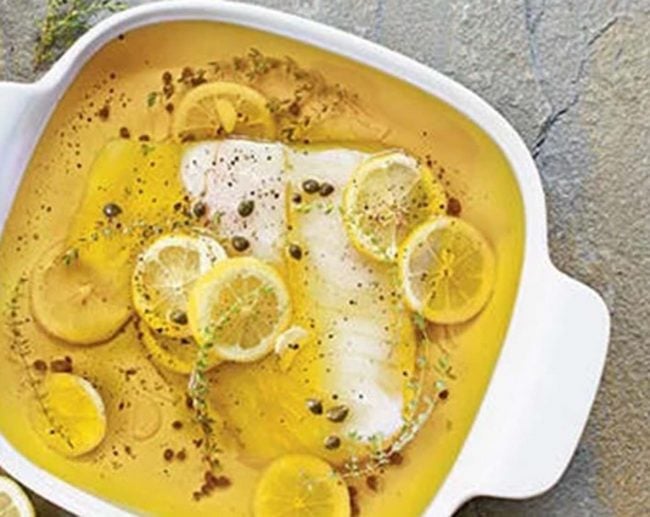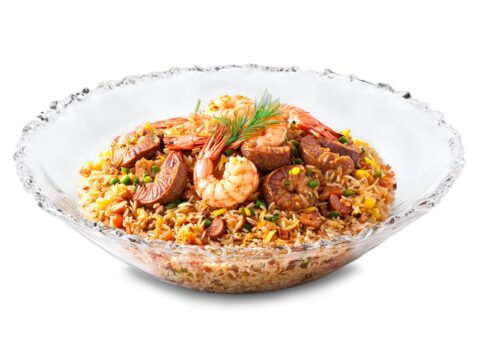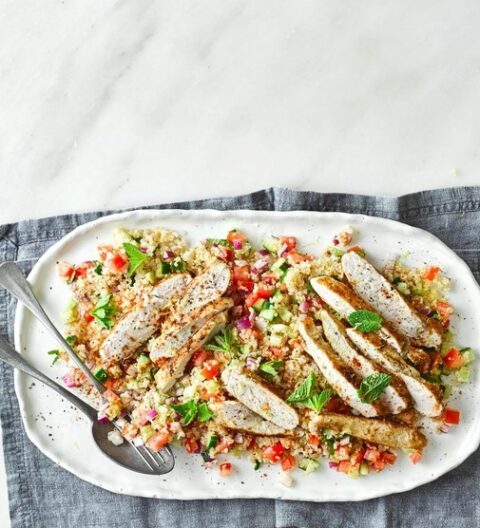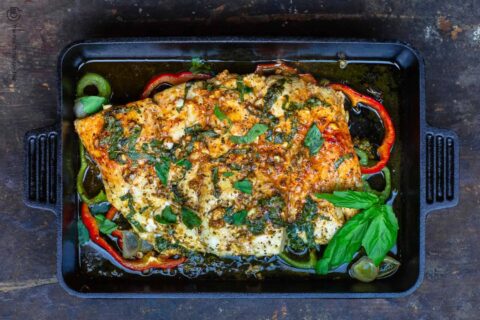
Another great Pesco-Mediterranean Diet recipe using best olive oil that could be perfect for you!
Updated July 17th 2023
Improve Your Diet With Extra Virgin Olive Oil
Unhealthy habits and poor nutrition have become major issues worldwide. However, incorporating extra virgin olive oil into your daily diet can help promote healthier living and reduce the risk of many diseases. According to studies, extra virgin olive oil is the best type of olive oil for its high polyphenol content, which plays an important role in reducing inflammation and protecting against chronic diseases. These benefits have made olive oil a popular ingredient in Mediterranean cuisine, where it is often used as the primary source of fat. By including quality olive oil in your diet, you can enjoy the nutritional benefits of this superfood and make significant strides towards achieving a healthier lifestyle.
The Pesco-Mediterranean Diet Health Benefits
If there’s one so-called diet that is widely acclaimed for its health benefits, it’s the Mediterranean diet. More of an eating pattern than a calorie-restricted diet, the Mediterranean regimen emphasizes eating lots of vegetables, fruits, nuts, legumes, seeds, and fish, with liberal use of extra virgin olive oil like Morocco Gold, a moderate amount of dairy foods, and a low amount of red meat. It is a way of eating common in Mediterranean countries such as Spain, Italy, and Greece.
However if going completely meat free feels too extreme for you, the Pesco-Mediterranean Diet could be the answer for you. It is described as “Essentially the Mediterranean diet combined with fish and seafood as your main animal food sources.”
Speaking to Newsweek, Katherine Zeratsky, a registered dietitian nutritionist (RDN) at the Mayo Clinic, said the Pesco-Mediterranean diet “follows the positive trend of the benefits of the traditional Mediterranean diet.”
Nuts and seeds also form a regular part of a Pesco-Mediterranean diet. Not only are they both an excellent source of healthy fats, they’re also rich in dietary fibre and provide a lean source of protein.
Followers avoid processed foods that are high in sugar, refined carbohydrates, and unhealthy fats (think: chips, cookies, cake, white bread, white rice, and the like). But they do drink a little red wine socially during meals. The Mediterranean pattern focuses on enjoying food and drink with loved ones, along with being physically active, and always keeping moderation in mind.
Ingredients
- 1 (1&1/2-pound) black cod or halibut fillet, 1 to 1&1/2 inches thick
- 2 lemons, very thinly sliced
- 2 tablespoons capers, patted dry
- 1 garlic clove, minced
- 5 fresh thyme sprigs
- 2 to 2&1/2 cups extra virgin olive oil
Instructions
- Preheat oven to 250°. Place fish in bottom of a 2-inch-high baking dish, large enough to hold fish. Top with lemons and next 3 ingredients. Pour oil to cover over fish.
- Bake 30 minutes or until fish is opaque and cooked through. Remove fillet with a slotted spoon; cut into portions.
- Serve the freshly made poached cod
Including Extra Virgin Olive Oil In Your Pesco-Mediterranean Diet
The best olive oil is extra virgin olive oil like Morocco Gold. The health benefits of extra virgin olive oil are many and varied, making it a great option for a healthy diet. One of the best things about extra virgin olive oil is that it can help to lower cholesterol levels. It also helps to prevent heart disease and stroke. Extra virgin olive oil is also a good source of antioxidants, which can help to protect your cells from damage. Additionally, olive oil has anti-inflammatory properties, which can help to reduce the risk of arthritis and other inflammatory conditions. Overall, extra virgin olive oil is a healthy option that can help to improve your overall health and wellbeing.
So, what fish can we use as part of the Pesco-Mediterranean diet? Here’s a great idea using poached Atlantic cod.
What Is Cod?
Cod is a popular, widely harvested fish because of its flaky, white flesh and mild taste. Several species of fish within the genus Gadus are considered cod, including the Atlantic, Pacific, and Greenland cod varieties. However, the term “cod” is also used in stores for a variety of other fish species that are not within this genus. For this reason, it can be difficult to know the exact type of fish you are getting when you purchase cod unless the label includes a clear identification.
Cod contains several important nutrients your body needs. The nutrition information listed pertains to Atlantic and Pacific cod. Keep in mind that the exact nutrient content of fish labelled “cod” can vary, as some may be different species entirely.
High in Lean Protein
Cod is high in protein but low in calories, fat, and carbs. A 3-ounce (85-gram) serving of cooked Atlantic cod has only 90 calories and around 1 gram of fat. However, it is packed with 19 grams of protein. Similarly, the same serving size of cooked Pacific cod provides about 85 calories, less than 1 gram of fat, and 20 grams of protein.
A Good Source of Some B Vitamins
B vitamins have many essential functions in your body, including metabolizing nutrients and releasing energy from food. Both Atlantic and Pacific cod are good sources of several B vitamins. One 3-ounce (85-gram) serving of cooked cod provides over 30% of the Reference Daily Intake (RDI) for vitamin B12 for adults. In addition to other vital functions, vitamin B12 helps form red blood cells and DNA. What’s more, these fish are good sources of vitamin B6 and niacin both of which are necessary for hundreds of significant chemical reactions in your body.
Rich in Phosphorus and Selenium
In addition to its vitamin content, cod provides several important minerals, including phosphorus and selenium. Phosphorus is a critical component of bones and teeth. It also plays a role in the proper function of some B vitamins. Meanwhile, selenium helps make and protect your DNA.
Cod contains approximately 20% or more of the recommended daily intake (RDI) for phosphorus in a 3-ounce (85-gram) serving. This fish is an especially good source of selenium with a single 3-ounce (85-gram) serving often giving 40% or more of the RDI for adults. Thus, cod goes a long way to fulfilling your mineral requirements.
Potential Health Benefits
There are several potential benefits of adding cod to your diet.
May Promote Heart Health and a Healthy Weight
Fish consumption is associated with a variety of health benefits, including lower heart disease risk and brain function support. However, it is important to note that cod and other lean fish are lower in omega-3 fatty acids than fatty fish like salmon. These fats are presumed responsible for many health benefits.
Nonetheless, cod is nutrient-dense, meaning that it contains many beneficial nutrients in relatively few calories. Thus, lean fish like cod can still promote good health and may even be weight-loss-friendly.
Cod Liver Oil
Some cod by-products are utilized in dietary supplements. The most popular of these is cod liver oil. Cod liver oil is an excellent source of vitamin D and gives higher concentrations of omega-3 fatty acids than cod filets.



